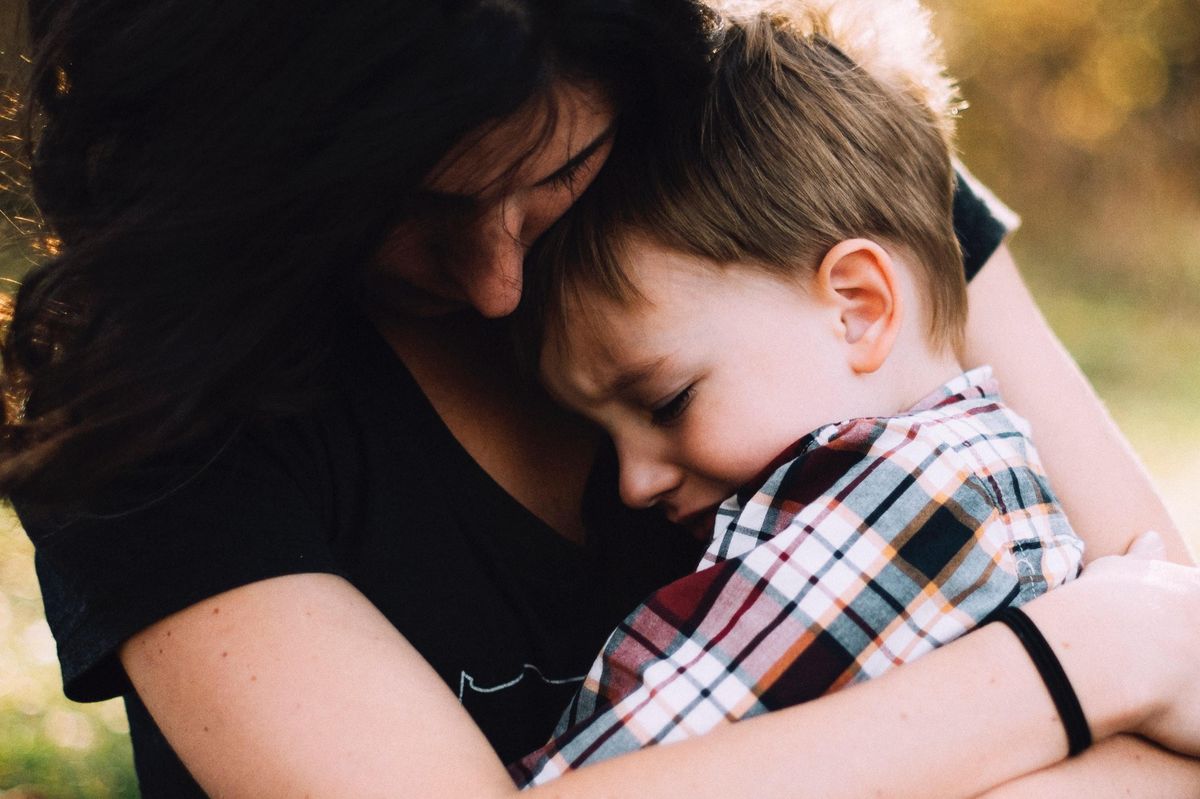An 8-year-old saved his classmate's life after seeing him choking in school cafeteria
'There's not enough words to be grateful for saving him.'

Kid's quick acting saved a classmate.
Kids have a habit of picking things up pretty quickly. Usually it's things you wish they wouldn't have learned, like mimicking your frustrated swear words. But sometimes a skill comes in pretty handy, such as for 8-year-old Garrett Brown, who recently saved the life of his classmate at Lakeview Elementary School in Norman, Oklahoma. Garrett was sitting at the lunch table eating with his friends when a boy started to choke on his chicken nuggets, which prompted Garrett to perform the Heimlich maneuver.
You may be wondering where Garrett learned the Heimlich maneuver and the answer is pretty simple: his dad. Garrett told Local 10 News, “My dad taught me whenever I was choking and so, he taught me how to do it in case anybody else was doing it.” It's a good thing Garrett absorbed that life lesson, because it certainly came in handy this school year. The entire situation seems so surreal. According to Good Morning America, the kids were in the cafeteria excitedly chatting away because it was chicken nugget day. The cafeteria only had one monitor at that time and she was on the other side of the room when the incident took place.
When the classmate, Cashton York, began to choke, the kids at the table started yelling for the teacher that was monitoring the cafeteria, but before she could make it across the room, Garrett had jumped into action. The 8-year-old took the skill his father taught him and immediately rushed behind Cashton to administer the two thrusts that caused the chicken nugget to fly out of his mouth.
The whole ordeal left adults impressed at this young child's fast thinking and applied skill. It was so unbelievable that it happened, Jordan Nguyen, the teacher who was monitoring the cafeteria, told GMA, "When it was done, we all took a breath and thought, 'Did that just happen? Was that for real? Did this really just happen?' And we had to go back and watch the security footage just to be sure that 'Oh, that is what happened. Oh, my goodness. It was pretty mind-blowing."
Can you blame them for rolling back the tape? What an amazing thing to witness, and the school felt the same way. Recently Garrett was presented with a "Hero Award" from Lakeview Elementary. Cashton's mom, Tiffany Smith, told KOCO News, "There are not enough words to be grateful for saving him."
It really goes to show how having basic knowledge of life-saving skills can help save a life in unexpected circumstances. The school was so impressed by Garrett's actions that the teachers have started taking classes on basic life skills. But the school isn't stopping there, it will soon be teaching these basic life skills/first aid classes to students in the school—on a kid-friendly level, of course. Nguyen explained to GMA, "That way, if they are out somewhere or if they're home alone, or if they're home with their siblings and something does happen, they'll know what to do."
By knowing this handy life-saving skill, Garrett is changing the way his school operates, though hopefully there's not another need for a student to use a skill like that. These basic skills classes will help the students feel more prepared for emergencies and, let's face it, everyone could use classes like these.
- 'Hero' dog helps authorities find missing owner - Upworthy ›
- 11-year-old hero helped save a kid from choking and a woman from ... ›
- 'Big Hero Dog' swims through Tennessee's floodwaters to save ... ›
- 8-year-old quietly saves friend's life during lunch, finishes eating - Upworthy ›
- Dad explains genius thinking behind making kids order food for the whole family at restaurants - Upworthy ›
- 20 "useless" life skills Boomers are still proud they know - Upworthy ›

